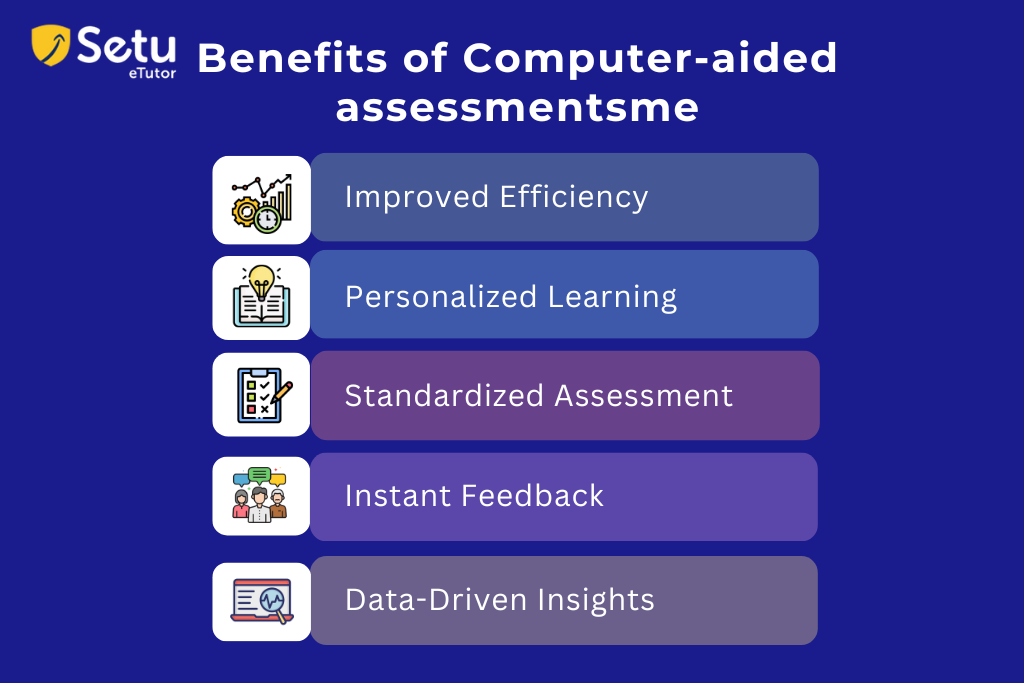Computer-aided assessments
Assessments play a vital role in determining the student’s key capabilities, strengths, and weak areas of academics. Teachers plan the content delivery accordingly based on the results driven by the assessments.
Computer-aided assessments (CAAs) use technology to aid in the delivery, administration, and scoring of tests or exams. These CAAs in schools help the teachers address the learning gaps and student performance.
This article will explore some of the significant benefits and limitations of Computer Aided assessments in schools.
Benefits of Computer-aided Assessments

Computer-aided assessments (CAAs) can offer several benefits to schools, such as:
Improved Efficiency: CAAs can grade objective questions automatically, saving time and effort compared to manual grading.
Personalized Learning: CAAs could be adjusted to each student’s level of comprehension, making learning more tailored for them.
Standardized Assessment: By offering standardized testing to all students, CAAs can lessen the chance of prejudice and assessment errors.
Instant Feedback: CAAs can give students feedback right away, assisting them in determining their areas of strength and weakness.
Data-Driven Insights: CAAs produce data that may be examined to reveal information about student performance and assist in guiding instructional decisions.
Limitations of Computer-aided Assessments
The limitations of computer-aided assessments in schools are:
Technical Concerns: Schools must ensure that their computer systems and networks can support the software and hardware needed for CAAs.
Security Concerns: Schools must ensure pupils cannot access other websites or programs during the examination or cheat.
Test Design: Careful consideration must be given to the test design, including the questions utilized and the difficulty.
Cost: Buying and implementing CAA software may come at an initial and continuing cost.
Restricted question types: CAAs can only ask objective questions, such as multiple-choice questions, which may not be appropriate for all subjects or assessment types.
SETU: A Comprehensive Solution for Computer-Aided Assessments
SETU is an AI-assisted assessment platform that provides students with computer-aided assessments (CAAs). Our SETU platform can assist students by delivering CAAs to enhance their academic skills.
- Especially for smaller schools or institutions that cannot establish their assessment platforms, SETU can be a financially viable option for delivering CAAs.
- After completing an examination, SETU can give students rapid feedback, enabling them to pinpoint their areas of strength and weakness and modify their study methods accordingly.
- To prevent students from cheating or using other software or websites while taking the test, SETU offers a secure atmosphere for assessment.
- Teachers can make data-driven decisions to improve student learning outcomes based on the insights of student performance.
Conclusion
Computer-aided assessments can be a valuable tool for instructors and students since they increase assessment process efficiency, accuracy, and standardization. To guarantee a comprehensive assessment of student learning outcomes, they should be employed in addition to other assessment methods.







Leave a reply